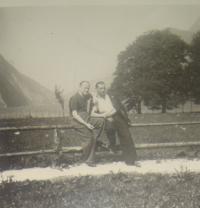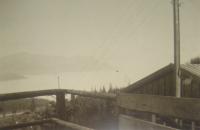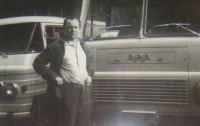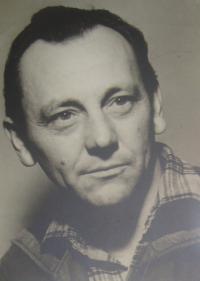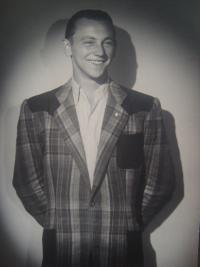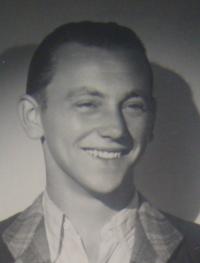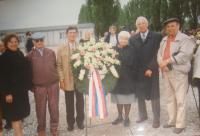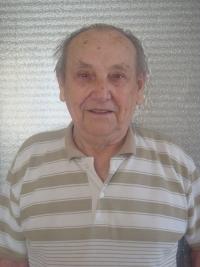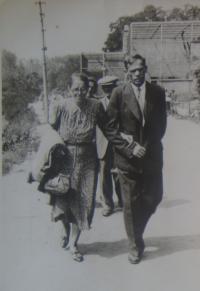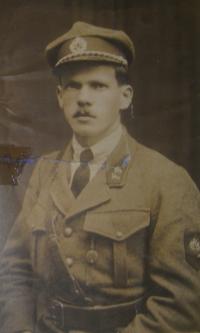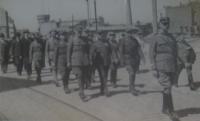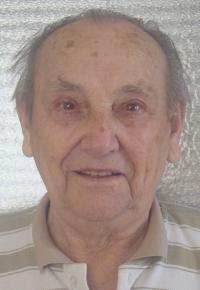In Dachau there was a sign up on the gate saying: Arbeit macht frei. I was telling myself: Oh, dear me

Download image
Václav Čechlovský was born on 14 April, 1922 in a village of Ptrukša near Velké Kapušany in the Eastern Slovakia. He grew up in a Hungarian environment and his childhood and was not happy. His mum died early and his father casted Vaclav off as orphan in Košice. Although he was put in care of Czech guardian family, the Hellers, but their marriage was not happy. Miss Hellerová left with Václav to Užhorod in Ruthenia, where she re-married a member of the financial guard, Radoslav Čechlovský. The family moved to Prague and Václav graduated an elementary school and apprenticed a shoe-maker. In 1939 he took part in anti-Nazi leaflets distribution and as his father was warned again gestapo interests, also Václav was agreed to leaf for work to Germany. He was placed in Obersalzberg to do roadworks. Later a company Xaver and Werner chose him and he moved to a position of plan copier. Then he also changed several positions in various places; also worked as a shoe-maker in a company Angerer in Ramsau and then a company Kosian in Bertechsgaden. In 1942 he was arrested by the gestapo. Until today he never learnt the real reason, as it may have been sabotages he committed at work, but he also maintained connection with German anti-Nazi resistance. The gestapo interrogated him harshly and was imprisoned in Obersalzberg, Hammerau, Bad Reichenhall and also stayed in a notorious Nazi „sekyrárna” in Stadelheim. On 11 February, 1943 he was transported in a concentration camp in Dachau, where he stayed in the blocks no. 25, 27 and 29. On 29 April, 1945 the concentration camp was liberated by the American army and Václav Čechlovský could leave home via Pilsen. After war he worked in a post-office in Prague as a shoe-maker in the National Security Corps and as a driver. Currently (2015) Václav Čechlovský lives in Prague.
